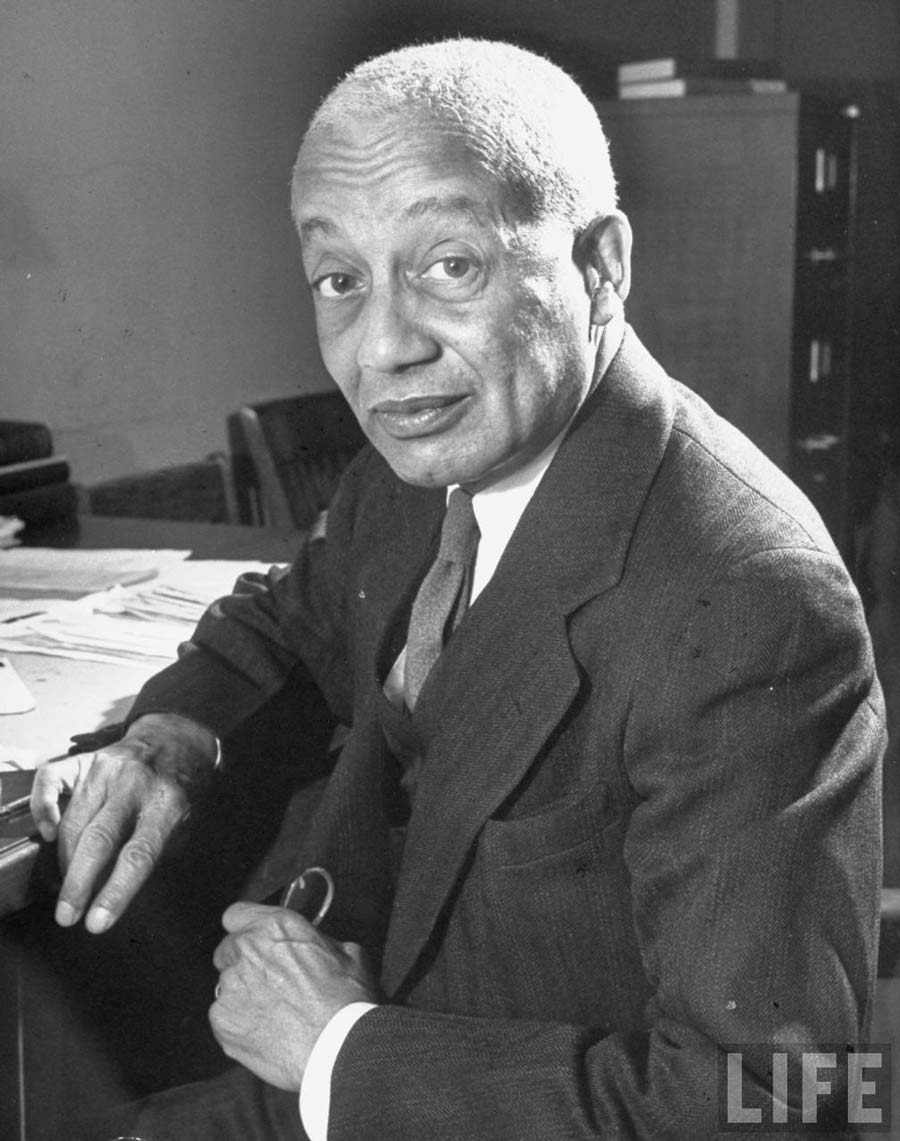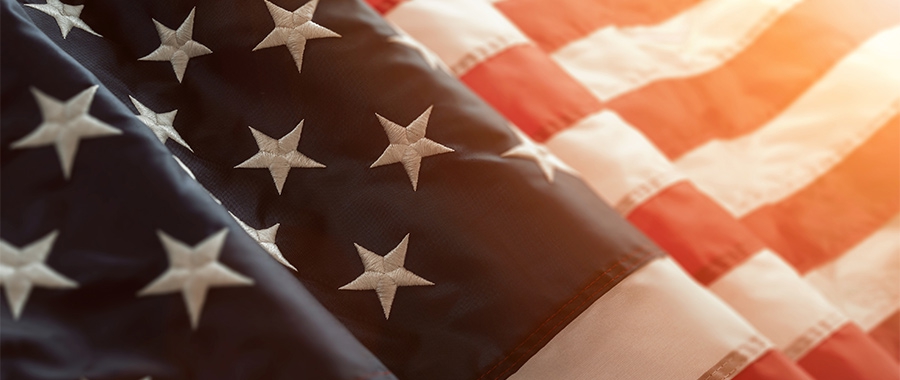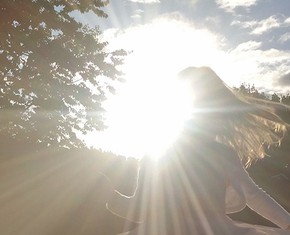The views expressed in our content reflect individual perspectives and do not represent the authoritative views of the Baha'i Faith.
Souls need salvation—and so do societies. “Salvation,” in the traditional Christian sense of the word, means salvation from sin and its consequences. Can countries be “saved?”
Could America, for example, experience “salvation”—could it discover a moral and social compass to guide it aright in order to achieve the social transformation it so sorely needs? Can America be saved? Let me explain by first telling you a true story.
“Holy Hubert”—I’ll never forget him. He was a “street preacher”—a Christian evangelist. He was missing a few teeth, but that didn’t cramp his style. I was fascinated by his courage, by his total dedication to Jesus Christ, and by his overpowering resolve to save the souls of as many college students as he could reach.
Back in 1976, on the campus of Western Washington State College (now Western Washington University) in Bellingham, “Holy Hubert” preached the gospel of Jesus Christ, which meant that he also preached salvation. During one of his outdoor sermons in the open-aired, brick-bedecked university “Quad,” Holy Hubert spotted a student on a bicycle. The student was wearing a backpack. He stopped to listen. Whereupon Holy Hubert shouted out to that student, saying: “Hey dead man on a bicycle! Jesus died on the cross to save you from your sins! Jesus loves you! Accept Jesus as your Lord and Savior! Otherwise, you’re riding your bike straight into Hell!”
I grew up as a Christian (first a Presbyterian, then a Pentecostal). So, all throughout my most impressionable years as a child and youth, the word “salvation” indelibly etched itself into my heart and soul. To this very day, I think about “salvation.” It’s something that I took very seriously, and still do. Every morning, when I wake up, I pray (in the original Persian and in the authorized English translation) a Baha’i prayer for salvation:
O my God, the God of bounty and mercy!
Thou art that King by Whose commanding word the whole creation hath been called into being; and Thou art that All-Bountiful One the doings of Whose servants have never hindered Him from showing forth His grace, nor have they frustrated the revelations of His bounty.
Suffer this servant, I beseech Thee, to attain unto that which is the cause of his salvation in every world of Thy worlds. Thou art, verily, the Almighty, the Most Powerful, the All-Knowing, the All-Wise. – Baha’u’llah, Baha’i Prayers, p. 146.
So you can well imagine how difficult it was for me to accept the Baha’i Faith, since I did not want to forfeit my salvation as a Christian. I originally thought I would be putting my soul at risk! This was a deadly serious decision. My very soul was at stake! So my “salvation” was the greatest fear that I had when I decided to become a Baha’i in 1972.

Alain Locke
From my Christian experience growing up, I can tell you that the Christianity I experienced, by and large, focused on individual salvation. But now I’d like to introduce you to the ideas of the salvation of democracy and social salvation. I’m not sure who coined those terms. On July 1, 1898, a short film, “Social Salvation,” directed by Herbert Booth, was released in Australia. That said, I first encountered the idea of the “salvation of democracy” in a speech by the Baha’i philosopher, Alain Locke, who had this to say in 1925, at a high-profile, national Baha’i event—The Seventeenth Annual Convention and Baha’i Congress, July 4th to 9th, 1925, at Green Acre, in Maine. Here is a published summary of what Locke said on that occasion:
America’s democracy must begin at home with a spiritual fusion of all her constituent peoples in brotherhood, and in an actual mutuality of life. Until democracy is worked out in the vital small scale of practical human relations, it can never, except as an empty formula, prevail on the national or international basis. Until it establishes itself in human hearts, it can never institutionally flourish. Moreover, America’s reputation and moral influence in the world depends on the successful achievement of this vital spiritual democracy within the lifetime of the present generation. (Material civilization alone does not safeguard the progress of a nation.) Baha’i Principles and the leavening of our national life with their power, is to be regarded as the salvation of democracy. In this way only can the fine professions of American ideals be realized. – Alain Locke, “America’s Part in World Peace.” Qtd. in Harlan Ober, “The Baha’i Congress at Green Acre,” Star of the West, Volume 16.5, August 1925, p. 525.
Louis G. Gregory took these notes of other remarks by Alain Locke on that notable occasion:
Dr. Alain LeRoy Locke of Washington, D.C., delivered a polished address, portraying the great part which America can play in the establishment of world peace, if alive to its opportunity. The working out of social democracy can be accomplished here. To this end we should not think in little arcs of experience, but in the big, comprehensive way. Let our country reform its own heart and life. Needed reforms cannot be worked out by the action of any one group, but a fine sense of cooperation must secure universal fellowship. He praised Green Acre, which he declared to be an oasis in the desert of materiality. He urged all who were favored by this glorious experience to carry forth its glorious message and thus awaken humanity. In final analysis, peace cannot exist anywhere without existing everywhere. – Summary of Alain Locke’s speech by Louis G. Gregory, Convention Reporter at The Seventeenth Annual Convention and Baha’i Congress, Baha’i News Letter No. 6, July–August 1925, p. 2.
Alain Locke’s concept of the “salvation of democracy” (quoted above) is linked to the closely-related idea of “social salvation” (quoted below) in this Baha’i essay which I rediscovered in the Howard University archives while doing research for my book, Alain Locke: Faith and Philosophy (2005):
The gospel for the Twentieth Century rises out of the heart of its greatest problems, and few who are spiritually enlightened doubt the nature of that problem. The clashing ominous nest of issues of the practical world of today, the issues of race, sect, class and nationality, all have one basic spiritual origin, and for that reason, we hope and believe one basic cure. … A change of condition will not remedy or more than temporarily ameliorate our chronic social antagonisms; only a widespread almost universal change of social heart, a new spirit of human attitudes, can achieve the social redemption that must eventually come. …
The redemption of society, social salvation, should have been sought after first, the pragmatic test and proof of the fatherhood of God is after all whether belief in it can realize the unity of mankind; and so the brotherhood of man, as it has been inspirationally expressed, the “oneness of humanity,” must be in our day realized or religion die out gradually into ever-increasing materiality. The salvation we have sought after as individuals in an after-life and another sphere must be striven for as the practical peace and unity of the human family here in this [world]. …
The fundamental problems of current America are materiality and prejudice. …
The word of God is still insistent, and more emphatic as the human redemption delays and becomes more crucial, and we have what Dr. Elsemont [Esslemont] rightly calls Baha’u’llah’s “one great trumpet-call to humanity”:
“That all nations shall become one in faith, and all men as brothers; that the bonds of affection and unity between the sons of men should be strengthened; that diversity of religion should cease, and differences of race be annulled … These strifes and this bloodshed and discord must cease, and all men be as one kindred and family.” [— Baha’u’llah]
Source: Alain Locke, “The Gospel for the Twentieth Century” [untitled essay], Alain Locke Papers, MSRC, Box 164-143, Folder 3 (Writings by Locke—Notes. Christianity, spirituality, religion). Published: “Alain Locke in His Own Words: Three Essays.” Edited and annotated by Christopher Buck and Betty J. Fisher. World Order 36.3 (2005): 37–48.
So can America be saved? We need to ask ourselves that question. Beyond the salvation of your soul—which “Holy Hubert” was so passionately concerned about—think about social salvation. In addition to individual salvation, we also need a wider social salvation.
Salvation is spiritual transformation, both personal and social: “The inward life of man as well as his outward environment have to be reshaped if human salvation is to be secured.” – Shoghi Effendi, May 27, 1932, letter to an individual Baha’i.
Salvation is ongoing. It begins, but never ends. Salvation is not a formula, nor is it a creed. Salvation is the revolution, then the evolution of the soul. It is progressive enlightenment—with painful lessons, plenty of setbacks and “tests”—yet always going forward.
Salvation has “vertical” and “horizontal” dimensions. The salvation of soul and society are dynamically interlinked. To be enlightened means to enlighten. Salvation, like enlightenment, is a matter of degree. Salvation is relative—especially when relative to others.
Can America be saved? Good question—but an open-ended question, with no easy answer. Salvation is the process of progress—spiritually and socially, for soul and society alike. Part of the answer, as it relates to race relations, in the words of Baha’u’llah, is that “differences of race be annulled.” As I understand this well-known statement, it does not refer to the elimination of racial diversity—which the Baha’i teachings celebrate—but rather to the abolition of racial prejudice and animosity, from which America needs to be emancipated, once and for all, in order to be saved as a viable society, and in order to serve as an exemplar—“as a city upon a hill” as John Winthrop famously said in 1630—for the world.
















Comments
Sign in or create an account
Continue with Googleor